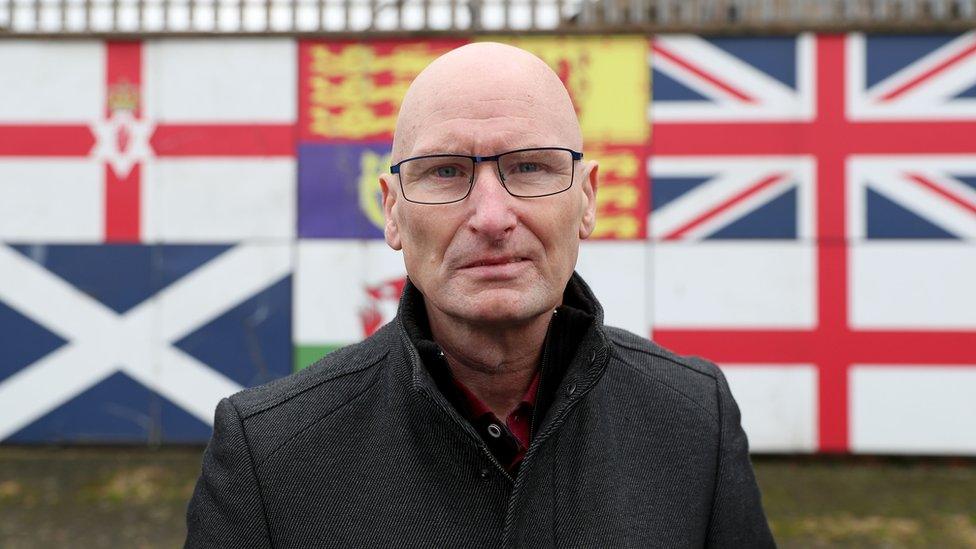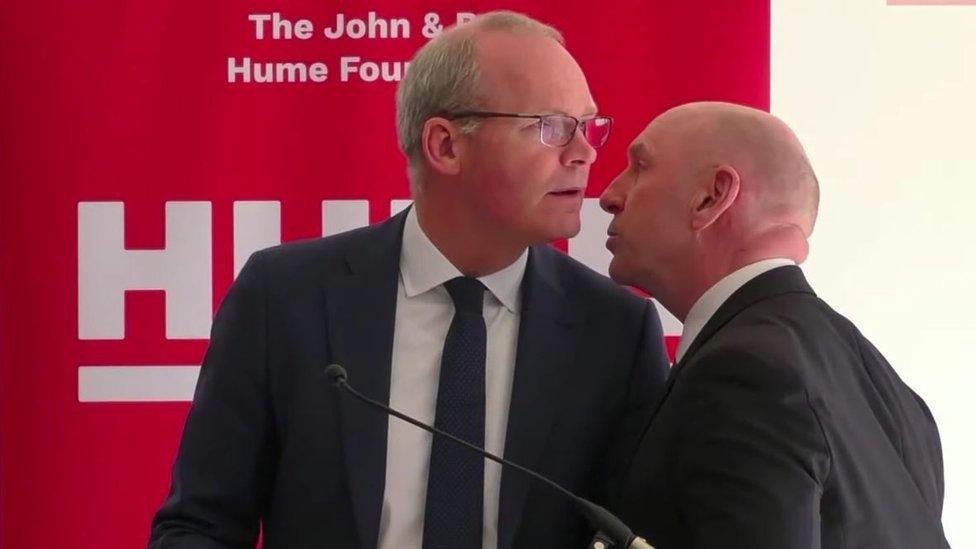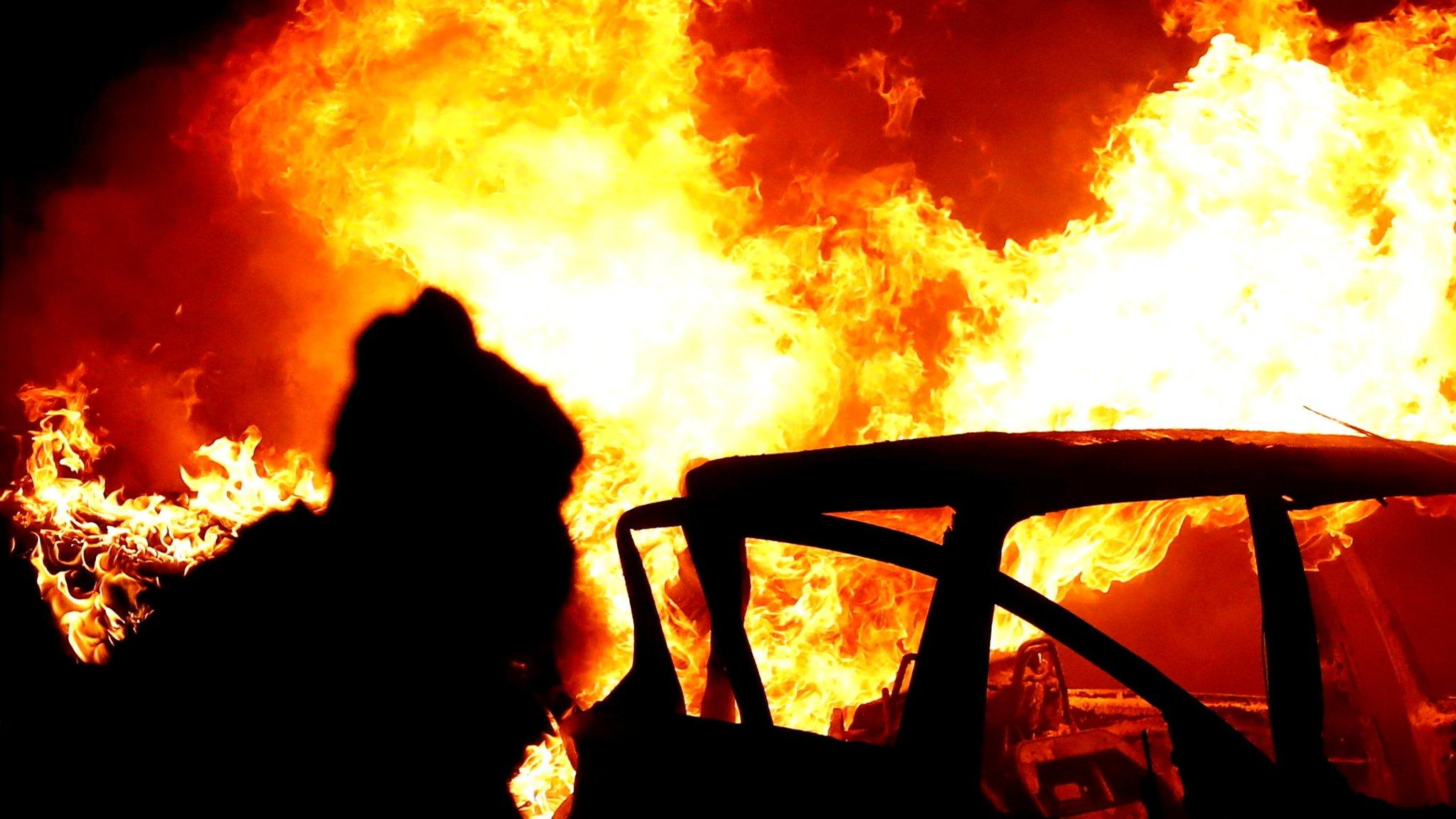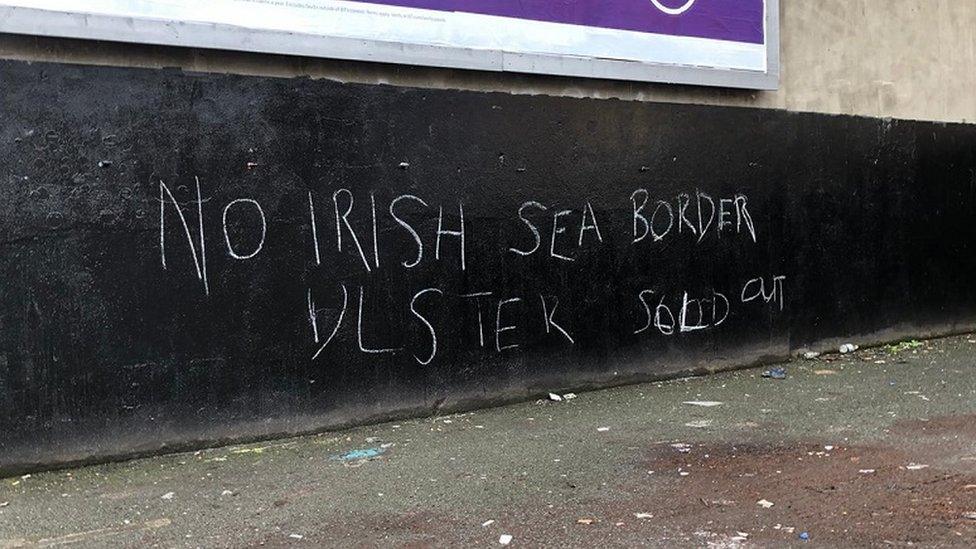Billy Hutchinson says loyalist community tensions highest since ceasefires
- Published

Billy Hutchinson leads the Progressive Unionist Party
Tension within loyalist communities is greater than at any point since the ceasefires of 1994, the Progressive Unionist Party (PUP) leader has said.
Billy Hutchinson said political developments, including Brexit protocol arrangements, had caused rising anger.
His comments echo views expressed in a letter to unionist party leaders by the Loyalist Communities Council (LCC).
It includes representatives of the Ulster Volunteer Force (UVF) and Ulster Defence Association (UDA).
It warned of "dire consequences" if joint London-Dublin rule of Northern Ireland was imposed in the continued absence of Stormont.
The Northern Ireland Office has said that joint authority is not under consideration.
'We cannot ignore loyalism'
Speaking on BBC Radio Ulster's Stephen Nolan programme, Mr Hutchinson, whose party is linked to the UVF, said: "I do not want to see violence.
"We need to make politics work. I want the British government to listen that there is tension.
"This is real. People should not be poo-pooing it.
"We cannot ignore loyalism. We are part of this society and we need to move forward together."
Mr Hutchinson denied that his remarks and the LCC letter made public last week amounted to a threat of violence.
It has previously been acknowledged that the so-called Irish Sea border arrangements on trade flows between Great Britain and Northern Ireland have created discontent within loyalism and unionism.
It was one of the factors at play in successive nights of street disorder in April 2021.
The LCC has also spoken out against Irish government ministers visiting Northern Ireland.
In March, Irish Foreign Affairs Minister Simon Coveney was forced to abandon a speech in north Belfast after an elaborate bomb hoax blamed on the UVF.
Last week, Assistant Chief Constable Mark McEwan told a Westminster committee that loyalist paramilitaries were likely to have played a role in organising peaceful anti-protocol rallies which took place on a regular basis until the summer.
Related topics
- Published25 March 2022

- Published8 April 2021

- Published26 February 2021
